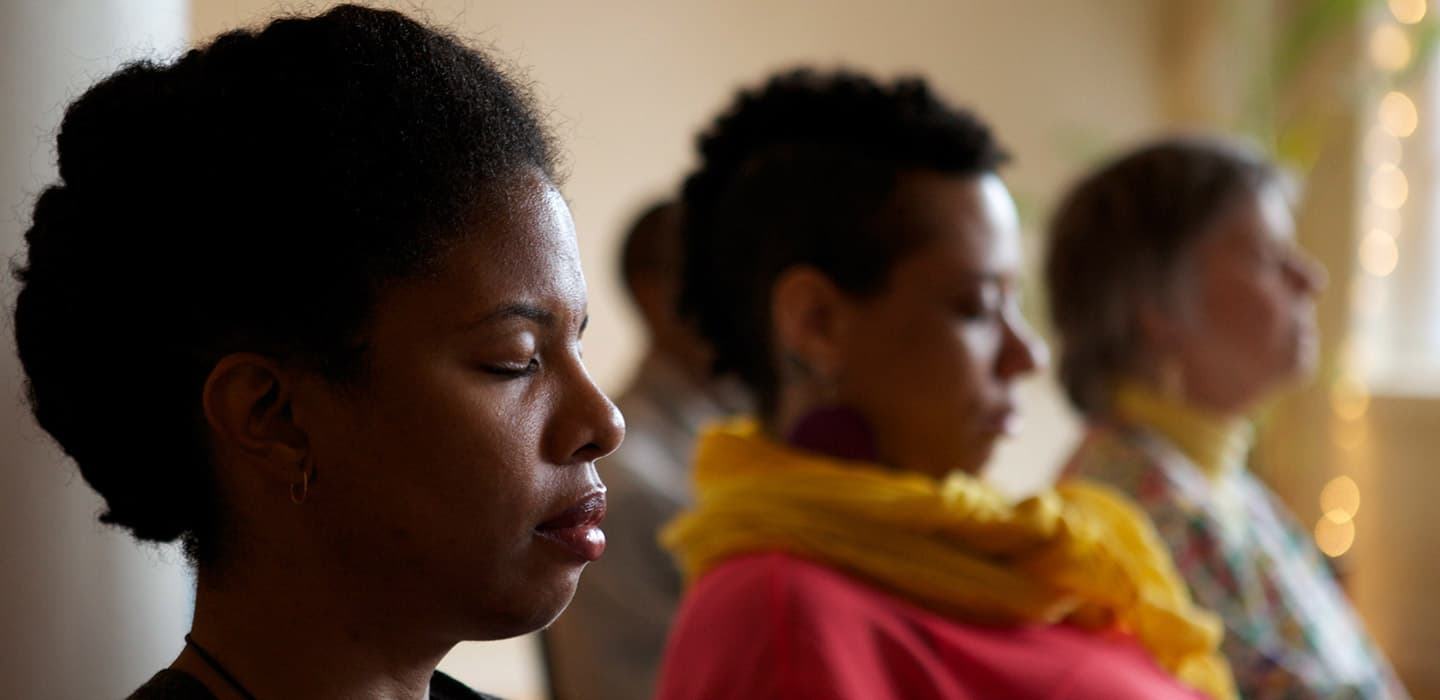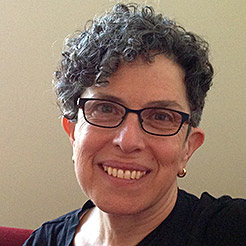In-Person: Mindfulness-Based Stress Reduction (MBSR) Course
with Elaine Retholtz
In-Person Course: Wednesdays, March 27th – May 22nd, 2024 (skipping April 24th) | 9:30am – 12:00pm ET
In-Person Daylong: Sunday, May 5th, 2024 | 9:30am – 5:00pm ET
Course Location: Still Mind Zendo at 34 W. 15th Street, 3rd Floor New York, NY 10011
Course Description:
New York Insight offers ongoing classes in Mindfulness-Based Stress Reduction (MBSR), the ground-breaking and time-tested, scientifically researched program developed by Jon Kabat-Zinn in 1979 for the University of Massachusetts Medical School. This transformative course is suited for those coming to meditation for the first time or for experienced meditators who realize they have not yet integrated these practices fully into their lives. The teaching of MBSR at NY Insight is offered by seasoned MBSR teachers, most of whom are certified by the University of Massachusetts Center for Mindfulness. All of our teachers have decades of meditation practice and study and between them have taught well over 200 cycles of this seminal 8-Week curriculum.
What To Expect:
MBSR uses meditation, mindful yoga, and inquiry/discussion as a way of exploring the habits of the mind to discover how these patterns of reactivity become a major cause of stress and where we could intervene to change them. MBSR helps participants learn to alter their relationship with each moment of their lives and through it derive more joy, fulfillment, and meaning from their lives. Classes usually have 25 – 30 participants but may be smaller. The course is experiential: by paying attention to what arises in daily and class practice, and through exploring the challenges that arise and how these are met, a supportive and safe container is created for students to feel connected and be inspired. Participants are supported by recorded guided meditations and are expected to practice 30-45 minutes of daily formal meditation as well as various informal practices.
Benefits of MBSR:
Research over the past 38 years indicates that a majority of people who complete this program report a greater ability to cope more effectively with short and long term stressful situations; an increased ability to relax, lasting decreases in physical and psychological symptoms; reduction in pain levels and enhanced ability to cope with chronic pain and most importantly a greater energy and enthusiasm for life. Some of the Skills People Learn in MBSR Courses: Practical coping skills to improve the ability to handle stressful situations, Methods for being physically and mentally relaxed and at ease, Gentle full-body conditioning exercises to strengthen the body and release muscular tension, The ability to be increasingly aware of the interplay of mind and body in health and illness, The ability to face change and difficult times in your life with greater ease, Greater ability to decrease the physical, mental and emotional effects of the societal stressors of sexism, racism, homophobia.
Some of the Skills People Learn in MBSR Courses:
- Practical coping skills to improve the ability to handle stressful situations
- Techniques for being physically and mentally relaxed and at ease
- Gentle full body conditioning exercises to strengthen the body and release muscular tension
- The ability to be increasingly aware of the interplay of mind and body in health and illness
- The ability to face change and difficult times in life with greater ease
- Greater ability to decrease the physical, mental and emotional effects of the societal stressors of sexism, racism, homophobia, xenophobia and gender inequity among many other challenges
Sliding Scale Course Fee: Sustaining $600 – Base $450
Please choose your rate mindfully and be as generous as possible so that NYI can continue to offer financial assistance to those in need of other NYI offerings. It is important when considering this class to make sure your schedule allows you to attend all 8 sessions, though if a class is missed there are usually concurrent classes which allow for make-up sessions. We currently don’t have any MBSR financial assistance at this time.
Disclaimer: Procedures adhere to current CDC & Still Mind Zendo’s guidelines. Changes may be applied at any time, based on CDC guidelines.
For the health and safety of our staff and community, please do not come onsite if you are feeling unwell.
Participants may register after the orientation for this class but must still view a recorded orientation, complete the pre-class questionnaire and arrange a pre-class interview with the teacher. Once you have registered, the teacher will contact you to make these arrangements.
In-Person Course Sessions:
Wednesdays, March 27th – May 22nd, 2024 (skipping April 24th) | 9:30am – 12:00pm ET
In-Person Daylong Session:
Sunday, May 5th, 2024 | 9:30am – 5:00pm ET
Course Registration:
If you are registering via mobile devices such as a phone or tablet, you can scroll right and left and up and down within the form if it is partially obscured or cut off.
CLICK HERE to open the registration form in a new window for an easier process.
Please contact registration@nyimc.org if you need assistance.
Note: for the health and safety of our staff, teachers, and community, please do not come onsite if you are feeling unwell. Please let us know so those on the waiting list will be able to attend.





 Elaine Retholtz has been studying and practicing the Dharma since 1988. In addition to teaching Dharma at New York Insight, she is a certified Mindfulness Based Stress Reduction teacher and has a deep interest in helping students integrate mindfulness practice into daily life. Elaine is committed to deepening her own understanding of issues of diversity and the way racial conditioning in the United States affects all of us — both as individuals and in relationship to the institutions we are a part of, including New York Insight. She’s been involved in New York Insight’s diversity efforts for many years, serving on the diversity committee, and working with others to create spaces – for diverse groups of practitioners as well as for white practitioners meeting separately – to explore these issues within a Dharma frame.
Elaine Retholtz has been studying and practicing the Dharma since 1988. In addition to teaching Dharma at New York Insight, she is a certified Mindfulness Based Stress Reduction teacher and has a deep interest in helping students integrate mindfulness practice into daily life. Elaine is committed to deepening her own understanding of issues of diversity and the way racial conditioning in the United States affects all of us — both as individuals and in relationship to the institutions we are a part of, including New York Insight. She’s been involved in New York Insight’s diversity efforts for many years, serving on the diversity committee, and working with others to create spaces – for diverse groups of practitioners as well as for white practitioners meeting separately – to explore these issues within a Dharma frame.